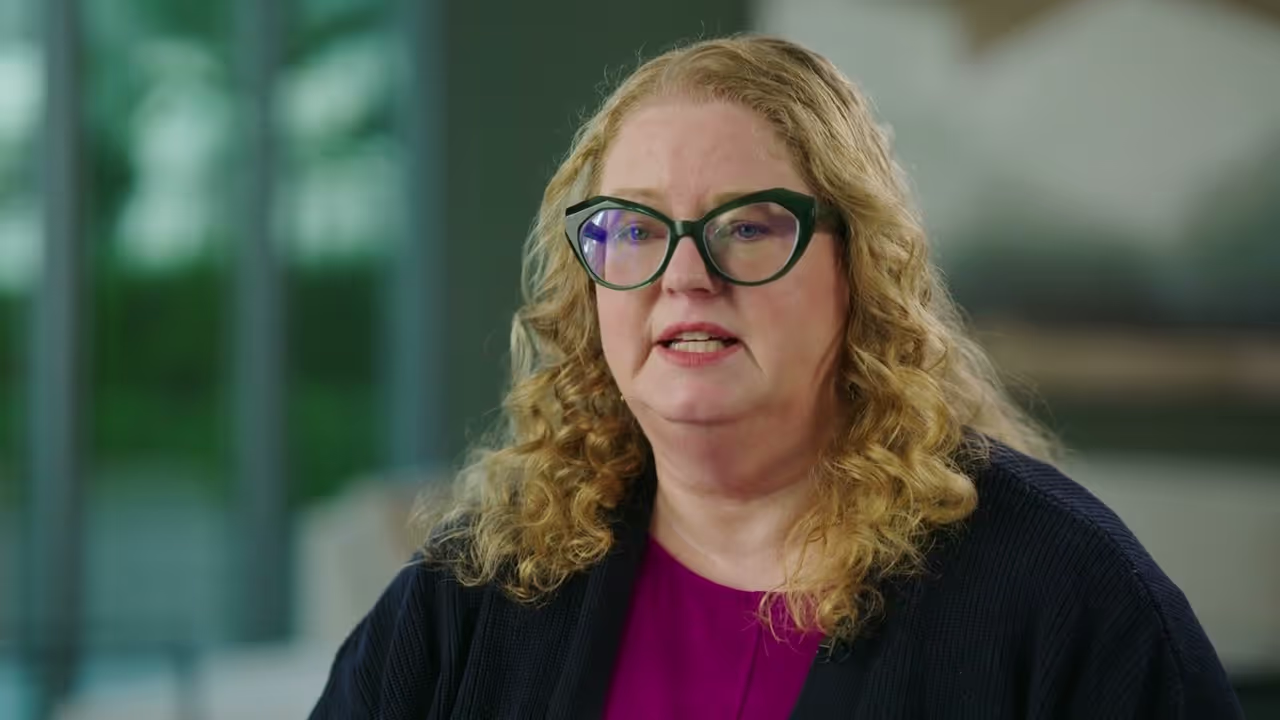Atypical anorexia is more typical than you think
Living with atypical anorexia can feel like an invisible battle. It's a constant struggle with restrictive eating patterns, weight anxiety, and poor self-image, even if your body doesn't fit the “typical” image of anorexia. We understand the complexities of atypical anorexia and are here to support you in healing and developing a healthier relationship with food and your body.

What is atypical anorexia?
This dangerous eating disorder is almost identical to anorexia nervosa, involving an intense fear of weight gain and using harmful habits such as restricting food or binge and/or purging, except the person impacted is at a "normal" or higher weight.
Often someone in a larger body struggling with an eating disorder can be ignored, minimized, or dismissed. At Monte Nido, we see you. And you deserve care.


Types of atypical anorexia
There are 2 primary types of atypical anorexia. Understanding and recognizing which type is impacting you is essential for developing and tailoring the most effective treatment plan.
Restricting Type
This type involves controlling weight by limiting food intake through fasting, extreme dieting, and sometimes intense exercise to burn consumed calories.
Binge/Purge Type
This type involves all the behaviors of the restricting type in addition to binge eating and/or purging behaviors like compulsive exercise, vomiting after meals, or misuse of diuretics or laxatives.
Signs & symptoms of atypical anorexia
Since a person with atypical anorexia may not have "low" body weight based on clinical standards, recognizing the signs and symptoms may be more difficult. Familiarizing yourself can help you or a loved one seek the appropriate support.
Risk factors for atypical anorexia
This life-threatening illness can afflict anyone. Several factors that can increase the risk of developing atypical anorexia:
Sociocultural Pressures
Many people with atypical anorexia have experienced intense weight bias and weight stigma throughout their lives. Cultural and societal emphasis on thinness and dieting can influence body image and contribute to disordered eating.
Psychological Factors
Factors such as depression, anxiety, low self esteem, or obsessive compulsive disorder (OCD), as well as characteristics of perfectionism can be associated with a higher risk of atypical anorexia.
Dieting and Weight-Related Behaviors
A history of extreme dieting, excessive exercise, and weight loss practices can lead to unhealthy eating patterns. Many people that develop atypical anorexia do so after being told by others to lose weight.
What does atypical anorexia treatment look like?


Monte Nido can help
No shape or size is immune from developing an eating disorder. Unfortunately, weight bias and assumptions often lead to inequities in treatment despite that atypical anorexia can be life threatening. We provide weight and size inclusive care because we believe everybody has the right to recovery. This means that we:
- Recognize that all bodies deserve to be nourished and experience satiety.
- Provide furniture and comfortable accessibility for all body sizes, including elevators and ramps, at many programs.
- Have openness and accessibility of our kitchens and foods in a comfortable home-like setting.
- Respect your ability to request and be provided more food for nourishment and satiety and provide culturally appropriate foods.
- Hold the belief that weight loss attempts and focus during treatment are counterproductive for recovery from all eating disorder diagnoses.
- Advocate for size diversity; our patients deserve to be the size they are meant to be and free from their eating disorder.
In addition to weight inclusive care, the treatment for atypical anorexia at Monte Nido includes a multidisciplinary approach, addressing both physical and psychological aspects of the disorder. Our dedicated doctors, nurse practitioners, dietitians, therapists, social workers, and mental health counselors have helped many individuals impacted by this disorder.
We customize treatment plans for each person we serve, accounting for the nature of your disorder, background, and personal needs. Treatment is structured and conducted in both individual and group therapy sessions, with the goals of eliminating symptoms, replacing distorted thoughts with self-confidence, and helping you eat freely and flexibly. We’re here to provide you with the best chance for long-term recovery, which you deserve.
If you have more questions, please reach out
Frequently asked atypical anorexia questions
While both disorders share similar psychological and behavioral symptoms, atypical anorexia differs from anorexia nervosa in that individuals may have a "normal" or higher body weight.
Yes, atypical anorexia can lead to serious medical complications like bradycardia (low heart rate), low blood pressure, loss of bone density, hormone imbalances, malnutrition, and increased risk of suicide, even though the person may not appear emaciated. The psychological and physical effects can be just as severe as anorexia nervosa
Getting proper treatment is vital as untreated atypical anorexia can become life-threatening and lead to long-lasting physical and mental damage. Severe physical and psychological effects, similar to anorexia nervosa, despite the individual not being underweight, could include:
The physical ramifications of untreated atypical anorexia:
- Malnutrition and vitamin/mineral deficiencies
- Loss of bone mineral density (osteopenia/osteoporosis)
- Cardiovascular issues like bradycardia (low heart rate), low blood pressure
- Gastrointestinal problems and constipation
- Hormone imbalances and menstrual irregularities
- Fatigue, dizziness, and weakness
- Hair loss
- Slow healing and increased risk of stress fractures
The mental impact of untreated atypical anorexia:
- Increased risk of other mental health issues like anxiety, depression, suicidal thoughts and behaviors
- Obsessive thoughts about food, weight, and body image
- Social withdrawal and isolation
- Distorted body image
Yes, atypical anorexia can lead to serious medical complications like bradycardia (low heart rate), low blood pressure, loss of bone density, hormone imbalances, malnutrition, and increased risk of suicide, even though the person may not appear emaciated. The psychological and physical effects can be just as severe as anorexia nervosa
Yes, recovery from atypical anorexia is possible. With comprehensive treatment and ongoing support, you can recover. Start your journey with us here.
.avif)
.svg)



